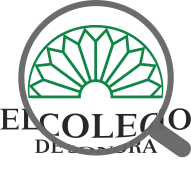Educación para la prevención del VIH-SIDA para inmigrantes indígenas en Baja California
No Thumbnail Available
Date
2007-09-01
Authors
Maier, Elizabeth
Journal Title
Journal ISSN
Volume Title
Publisher
El Colegio de Sonora
Abstract
The objective of this article is to anchor the analysis of a research-action experience in education for the prevention of HIV-AIDS in indigenous immigrant communities in Baja California, to a theoretical and phenomenological framework that organizes the multiple dimensions of this issue, and offers a deeper understanding of the implications of the pandemic for these communities, the significance of indigenous women's participation, and the results obtained, as well as the importance of a gender perspective and cultural orientation for its success. The concept of vulnerability is used to depict the extremely fragile living conditions of origin and receptive indigenous communities, the subaltern implications of indigenous women's traditional identity, and the risks of migration itself. This article interprets community health promotion in terms of the gendered culture of origin communities, the historical and subjective meanings of increasing indigenous migration, and subsequent attempts at social, cultural, and gender reorganization produced by migratory dislocation. Based on this complex theoretical, conceptual, historical, phenomenological and relational jigsaw puzzle, the last part of the article focuses on the mechanics and contents of the project, and the results obtained by the community and the women promoters from the experience.
El objetivo del presente artículo es anclar el análisis de una experiencia de investigación-acción en educación, para la prevención del VIH-SIDA en comunidades indígenas inmigrantes en Baja California, a un marco teórico y fenomenológico que organice las dimensiones múltiples de la problemática, y permita mayor comprensión del significado de la pandemia para estas comunidades, el sentido de la participación de las actoras principales del proyecto, sus resultados, las implicaciones de la articulación de la perspectiva de género y una orientación cultural para su éxito. Se utiliza la categoría vulnerabilidad, para ejemplificar las condiciones de vida tan frágiles de las comunidades indígenas de origen y recepción, los significados subalternos de la identidad tradicional de las indígenas y los riesgos propios de la migración. El artículo interpreta el ejercicio de promoción de la salud comunitaria a partir del sentido cultural de género de las comunidades de origen, los significados históricos y subjetivos de la emigración indígena creciente y los ensayos consiguientes de reorganización social, cultural y genérica, causados por la dislocación migratoria. A partir de este complejo rompecabezas teórico, histórico, fenomenológico y relacional, en los últimos apartados se examina la mecánica del proyecto, sus contenidos y el cúmulo de resultados que la experiencia arrojó a la comunidad y a las promotoras.
El objetivo del presente artículo es anclar el análisis de una experiencia de investigación-acción en educación, para la prevención del VIH-SIDA en comunidades indígenas inmigrantes en Baja California, a un marco teórico y fenomenológico que organice las dimensiones múltiples de la problemática, y permita mayor comprensión del significado de la pandemia para estas comunidades, el sentido de la participación de las actoras principales del proyecto, sus resultados, las implicaciones de la articulación de la perspectiva de género y una orientación cultural para su éxito. Se utiliza la categoría vulnerabilidad, para ejemplificar las condiciones de vida tan frágiles de las comunidades indígenas de origen y recepción, los significados subalternos de la identidad tradicional de las indígenas y los riesgos propios de la migración. El artículo interpreta el ejercicio de promoción de la salud comunitaria a partir del sentido cultural de género de las comunidades de origen, los significados históricos y subjetivos de la emigración indígena creciente y los ensayos consiguientes de reorganización social, cultural y genérica, causados por la dislocación migratoria. A partir de este complejo rompecabezas teórico, histórico, fenomenológico y relacional, en los últimos apartados se examina la mecánica del proyecto, sus contenidos y el cúmulo de resultados que la experiencia arrojó a la comunidad y a las promotoras.
Description
Keywords
Prevention, Hiv-aids, Migration, Receptive indigenous communities, Community education, Cultural sensibility, Gender perspective, Indigenous women promoters|, Prevención, Vih-sida, Migración, Comunidades indígenas de recepción, Educación comunitaria, Sensibilidad cultural, Perspectiva de género, Promotoras indígenas, Ciencias Sociales




